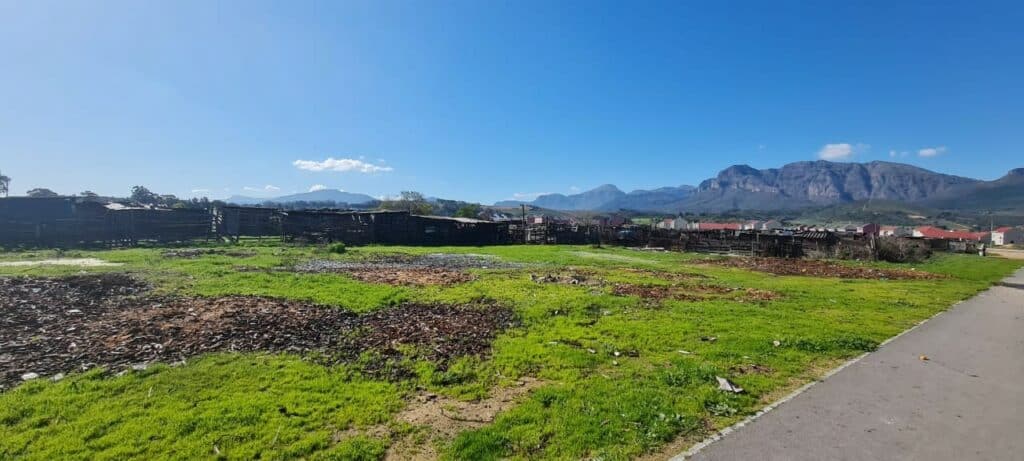Recently, SAPPO visited a few commonages in the Western Cape. The Western Cape smallholder and developing pig farming environment is dominated mainly by what is regarded as a commonages /communal farming systems. This is where a group of farmers operate as separate businesses that share land. The most interesting commonage visited was in Paarl, Mbekweni, where about 80 farmers owning different livestock, including pigs, sheep, goats, broilers, and layer chickens, farm on approximately 2 ha of land. With about 1 500 pigs belonging to different farmers, the commonage previously experienced an outbreak of African swine fever (ASF), but continued farming.
Considering the economic and industry challenges, farmers in this area make end meets due to their successful marketing strategy. They are both producers and retailers, and sell their products for up to R76/kg of fresh pork. Farmers also actively participate in the “Tshisanyama” market, which is believed to be highly profitable. With their low-cost housing and rations that are not particularly well balanced, the standard practice is to slaughter a pig at six months of age, while the farmer does not know the pig’s weight due to the unavailability of scales. From observation, pigs considered to be six months old weigh between 70 kg and 80 kg on a live weight basis. Sold fresh, farmers are able to fetch between R5 000 and R6 000 per pig, an income they would not realise if they were selling directly to the abattoir.
The key lesson learnt from these farmers lies in their the ability to identify risks and opportunities as well as to understand market conditions.
The South African Pork Producers’ Organisation (SAPPO) coordinates industry interventions and collaboratively manages risks in the value chain to enable the sustainability and profitability of pork producers in South Africa.








